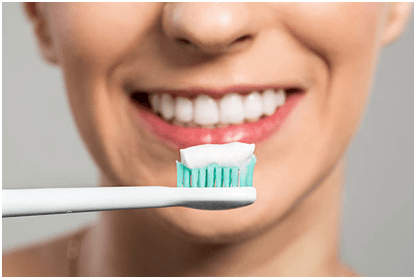Child Dental Care in Asheville, NC

1. At What Age Should My Child First See a Dentist?
A Child’s First Dental Visit
Ans. A child’s first dental visit should be at age 1 or within 6 months after the eruption of their first tooth.
2.How can I get my kids to brush their teeth?
Make Brushing Fun for Kids
Ans. A few ways are:
- Start at an early age
- Be a good example of how we brush to keep out teeth clean.
- Choose the right size tooth brush and proper toothpaste.
- Make brushing a game.
3.What is baby bottle tooth decay and how can I prevent it?
Preventing Baby Bottle Tooth Decay
Ans. It is severe baby tooth decay in infants and young children. It’s caused by frequent long lasting feeding, especially at night.
4.Are Dental X-rays safe for Children?
Benefits of Dental X-Rays for Kids
Ans. According to the American Dental Association, dental X-rays are safe. They will exposure your child to low levels of radiation, but the possibility of experiencing harm is very low.
5.My child plays sports. How should I protect my child’s teeth?
Ways to Protect Your Child’s Teeth during Sports
Ans. Flexible mouth guards can be made that fit over the top teeth. As the athlete bites down the guard will help protect both top and bottom teeth.
6.What are the signs my Baby has crooked teeth?
Problems with Baby crooked Teeth
Ans. Signs are where there are no spaces between baby teeth, or when the teeth come in slanted or at an angle. Another sign is when the crowding of the bottom front teeth creates a V-shape.
7.Where can I find more information about oral health care for my child?
A Guide to Improving Children’s Oral Health Care
Ans. Good sites for more information are the American Pediatric Dental Association, the American Dental Association and the CDC.
Brushing Techniques for Healthy Teeth

1.How often should I brush and floss?
Ways to Make Flossing Easier
Ans. The American Dental Association recommends that you brush your teeth twice daily while flossing daily.
2.What Type Of Electric Toothbrush Should I Use?
Find the best Electric Toothbrushes according to dentists
Ans. Choose the electric toothbrush that best fits your mouth and has soft bristle brushes. Otherwise, they all work well.
3.When is the best time to brush my teeth?
The importance of brushing twice a day
Ans. It is important to brush when you first wake up. Bacteria has been able to build on your teeth all night. If you eat breakfast first, then wait 30 minutes to allow any acids in your mouth to neutralize. At night times, brush at least 30 minutes after your last meal or right before bed.
4.How often should I replace my toothbrush?
When to Get a New Toothbrush
Ans. Your toothbrush should be replaced every 3 months.
5.Is brushing enough to keep my teeth clean and cavities-free?
Know your cavity risk level
Ans. Brushing may not be enough to keep your mouth cavity free. In most cases an evaluation of the sugars in your diet will also need to be done in order to have a healthy mouth.
6.What’s the worst that could happen if I don’t brush my teeth?
Possible problems from not brushing
Ans. If you don’t brush your teeth, you risk having tooth decay, gum disease and bad breath.
7.Is an electric toothbrush better than a manual toothbrush?
Use the Best Brushing Technique
Ans. An electric toothbrush can be beneficial in a few ways. First, they often control your time brushing. It is recommended to brush for two minutes. Also, an electric toothbrush may help an individual that does not have the manual dexterity to properly clean their teeth with a manual brush.
Dental Health

1.What Is Tooth Sensitivity and Why Do I Have It?
Symptoms of sensitive teeth
Ans. Tooth sensitivity can be cause be many different reasons. Fractured teeth, missing fillings, recessed gums that expose the root of the tooth, and tooth decay are just a few possible reasons. The best decision is to make an appointment with your dentist if you have tooth sensitivity.
2.How long will my dental restoration last?
Procedures for dental restorations
Ans. The length of time a dental restoration will last depends on the size of the restoration, the type of material used and how well the person’s oral health is maintained.
3.Why is pulling a tooth not always the best decision?
Benefits of Saving Your Tooth
Ans. Removing a tooth is often not the best decision for you overall health. Depending on the location of the missing tooth it can affect a person’s smile and self-esteem. Furthermore, it may affect chewing ability which is important for gastrointestinal health.
4.Why is fluoride important for your dental health?
Use Toothpaste with Fluoride
Ans. Fluoride is recommended by the American Dental Association because it helps remineralize teeth which make them more resistant to decay.
5.How can cosmetic dentistry help improve the appearance of my smile?
Cosmetic dentistry can improve the appearance of your smile
Ans. Whitening the color of your teeth, correcting minor misalignments and restoring the shape of worn or fracture teeth are a few ways that cosmetic dentistry can improve your smile and possibly your self-esteem.
6.Why does my mouth feel dry?
Treating a dry mouth
Ans. Dry mouth can be caused by certain medical conditions, medications or by the way you breathe. If you have dry mouth, it is important to have a dental exam to determine the cause and find ways to alleviate the problem.
7.Is bad breath caused by other oral health issues?
The Surprising Thing That Could Be Causing Your Bad Breath
Ans. Bad breath can have many causes. It’s a good idea to start by evaluating your oral health. Cavities and gum disease can both cause one to have bad breath. A dental exam can quickly determine if bad breath is caused by your oral health or if other medical conditions could be the cause.
8.Are Amalgam (Silver) Fillings Safe?
Benefits of Dental Amalgam
Ans. The safety of silver fillings has been a hotly debated topic. The American Dental Association, FDA and CDC have evaluated the literature and found that it is a safe restorative material. However, silver fillings are being replaced by newer materials that are tooth colored, able to bond to tooth structure and have predictable long-term results.
9.How often should I have a dental exam and cleaning?
Caring For Your Teeth
Ans. The frequency of a dental exam and cleaning should be based on a patient’s health and risk for disease. Most individuals need a cleaning and exam every 6 months. However, there are patients that need to be seen every 3-4 months, but some only need annual appointments.
10.How can I help prevent tooth decay?
Preventing Tooth Decay
Ans. The best way to prevent tooth decay is by eliminating or reducing the simple sugars in your diet and by properly cleaning your teeth.
11.How do I get my new veneers to match my other teeth?
Factors to Consider if You’re Porcelain Veneers Don’t Match
Ans. Perfectly matching new veneers or crown to your natural teeth can be challenging. The most predictable method is to give the lab as much information as possible. This can be in the form of shade guides with diagrams, photos, or actually sending the patient to the lab for an evaluation.
12.Are payment plans available for my dental treatment?
Ways to pay for dental treatment
Ans. Payment plan options can vary from office to office. Our office uses Care Credit to help patients afford the dental care they need.
13.Do I need to have a root canal just because I have a crown?
Need To Know About Getting a Dental Crown
Ans. Root canal therapy is needed when there is irreversible damage to the pulpal tissue of a tooth. A crown is needed when there is significant damage to the enamel and dentin structure of the tooth. It is not always the case that root canal therapy is needed when a crown is needed. However, concerning the molars, a crown is usually required to best restore a tooth that has had root canal therapy.
14.How can I tell if I have gingivitis or periodontitis (gum disease)?
Symptoms of gingivitis and periodontitis
Ans. The most common signs of gingivitis are sore, bleeding and puffy gums. The most common signs of periodontal disease are receding gums, pain when chewing, loose or sensitive teeth, bad breath and sores on the inside of the mouth.
15.Is there anything I can do to prevent getting oral cancer?
Healthy Habits to Prevent Oral Cancer
Ans. The most common causes of oral cancer are tobacco use, heavy alcohol use, excessive sun exposure, Human papillomavirus (HPV) and immune deficiency.
16.What foods are good and bad for my teeth?
Best Foods for Your Teeth
Ans. Generally, foods that are acidic or high in sugars are not good for your teeth in large quantities and for long durations. Fiber rich fruits and vegetables tend to be good for your teeth because they help remove plaque as you are eating. Cheese and other dairy products can be beneficial because they add calcium to remineralize teeth. Finally, green and black teas contain polyphenols that disrupt plaque and the bacteria that cause decay.
17.How Dental Health Can Impact Your Heart?
Brush well to protect your heart
Ans. Poor dental health can increase the risk of bacteria entering the bloodstream and infecting valves of the heart causing a condition known as endocarditis.
Dentist

1.What should I look for when choosing a dentist?
Things to Consider When Choosing a Dentist
Ans. The best way to choose a dentist is to start by talking to family, friends and colleagues about their dentists. Then research a dentist’s credentials and expertise. These steps should help you find someone who aligns with how you want to be treated.
2.Is it safe to see the dentist while I’m pregnant?
Common questions about dental care during pregnancy
Ans. Continuing dental care while you are pregnant is important. Your dental team can help you maintain a healthy mouth which has been shown to be beneficial to a healthy pregnancy and baby.
3.Why is visiting the dentist so important?
Quick facts about a regular dental check up
Ans. Routine visits to the dentist are important because oral disease is often not symptomatic until it is severe. Routine visits allow for early detection which contributes to treatment that is less costly, time consuming and invasive.
4.How can I take care of my teeth between dental checkups?
Maintain a Daily Oral Hygiene Routine
Ans. The best way to take care of your teeth between visits is to monitor the sugary and acidic foods in your diet, brush twice a day and floss once a day.
5.How can I replace a missing tooth?
Common ways to replace a missing tooth
Ans. There are three main ways to replace a missing tooth. The first is by fabricating a removable appliance that clips on to your remaining teeth. The second is by preparing the teeth adjacent to the missing tooth for crowns and fabricating a crown in the missing tooth space. Then connect the missing tooth crown to the adjacent teeth crowns. This is called a fixed partial denture or bridge. Finally, a dental implant can be place to restore the missing tooth.
6.What can I do about stained or discolored teeth?
Tooth Discoloration Prevention
Ans. Stained or discolored teeth can be improved a couple of ways. First, try bleaching the teeth with in-office methods or bleaching trays. If that is not satisfactory then composite bonding, porcelain veneers or crowns can be fabricated to improve not only the shade but also the shape of the teeth.
